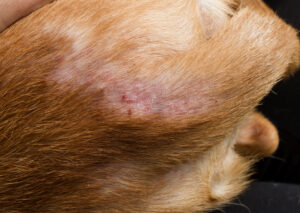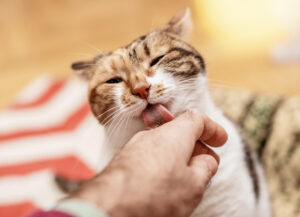Canine Flatulence: More Common Than You Think
Dog owners, have you ever found yourself wondering why your furry friend seems to pass gas more often than you’d expect? Dog farting is a common occurrence, but excessive gas can be a sign of underlying issues. In this comprehensive guide, we’ll explore the reasons behind excessive dog flatulence and what you can do to help your canine companion find relief.
The Biology of Dog Gas
Before diving into the potential causes of your dog’s flatulence, it’s essential to understand the normal biological processes that can lead to gas in dogs. Dogs, like humans, swallow air while eating and drinking. Additionally, bacteria in the digestive tract produce gasses as they break down food. Occasional gas is entirely normal, but persistent or particularly odorous gas may be a cause for concern.
Common Causes of Excessive Dog Flatulence
Dietary Factors
Diet plays a significant role in dog flatulence. If your dog experiences frequent gas, consider the following dietary factors:
- Low-Quality Dog Food: Some commercial dog foods contain fillers and low-quality ingredients that can lead to digestive issues and gas. Switching to a higher-quality dog food may help alleviate the problem.
- Dietary Changes: Rapid changes in your dog’s diet can disrupt their digestive system and result in gas. Gradually transition to new foods to give their system time to adjust.
- Table Scraps: Feeding your dog table scraps, especially those high in fat or spices, can lead to gas. Stick to a consistent and well-balanced diet designed for dogs.
- Food Allergies or Sensitivities: Some dogs may be intolerant or allergic to specific ingredients in their food. Common allergens include wheat, corn, soy, and certain proteins. Consult with your veterinarian to determine if dietary allergies are a concern.
Swallowing Air
Certain behaviors can cause your dog to swallow excess air, leading to increased flatulence. These behaviors may include eating too quickly, especially in competitive multi-pet households, or excessive barking and panting.
Gastrointestinal Issues
Underlying gastrointestinal problems can contribute to chronic flatulence in dogs. Conditions such as inflammatory bowel disease (IBD), gastrointestinal infections, or malabsorption disorders can disrupt normal digestion and lead to excessive gas. If your dog’s flatulence is accompanied by other concerning symptoms like diarrhea, vomiting, or changes in appetite, consult your veterinarian for a proper evaluation.
Minimizing Dog Flatulence
Choose the Right Dog Food
Selecting a high-quality dog food that suits your dog’s specific dietary needs can make a significant difference in reducing flatulence. Consult with your veterinarian to determine the best food for your dog’s age, breed, and any dietary sensitivities.
Monitor Treats and Table Scraps
Be cautious with treats and table scraps. Limit the amount of human food your dog consumes, and avoid feeding them scraps that are known to cause gas, such as fatty or spicy foods.
Slow Down Mealtime
If your dog eats too quickly, they’re more likely to swallow air along with their food, leading to increased gas. Consider using a slow-feeder bowl or spreading their meals across a larger area to encourage slower eating.
Gradual Dietary Changes
When transitioning your dog to a new diet, do it gradually over a week or more to allow their digestive system to adjust. Sudden dietary changes can trigger gas and digestive upset.
Regular Exercise
Exercise helps promote healthy digestion in dogs. Ensure your furry friend gets regular physical activity to keep their digestive system functioning optimally.
Consult with Your Veterinarian
If your dog’s flatulence persists despite dietary and lifestyle adjustments, or if it’s accompanied by concerning symptoms, it’s essential to consult with your veterinarian. They can perform a thorough examination and recommend appropriate tests, such as blood work or gastrointestinal screenings, to rule out underlying medical conditions.
When to Seek Professional Help
Persistent or Severe Gas
If your dog’s gas is persistent, severe, or accompanied by other concerning symptoms like diarrhea, vomiting, or changes in appetite or behavior, it’s time to consult with your veterinarian. These could be signs of an underlying health issue that requires prompt attention.
Allergies or Dietary Sensitivities
If you suspect your dog has food allergies or sensitivities, consult with your veterinarian. They can help you determine the allergens and recommend suitable dietary changes or hypoallergenic diets.
Gastrointestinal Concerns
If you suspect that your dog may have gastrointestinal problems contributing to their flatulence, such as IBD or malabsorption disorders, it’s crucial to seek professional veterinary care. Early diagnosis and treatment can make a significant difference in your dog’s well-being.
Contact Arvada Veterinary Hospital
If you have concerns about your dog’s excessive flatulence or any other health-related questions, please don’t hesitate to contact Arvada Veterinary Hospital at (303) 424-4439. Our team of veterinary experts is here to provide guidance, conduct thorough examinations, and recommend appropriate solutions to help your furry friend live a comfortable and gas-free life.





